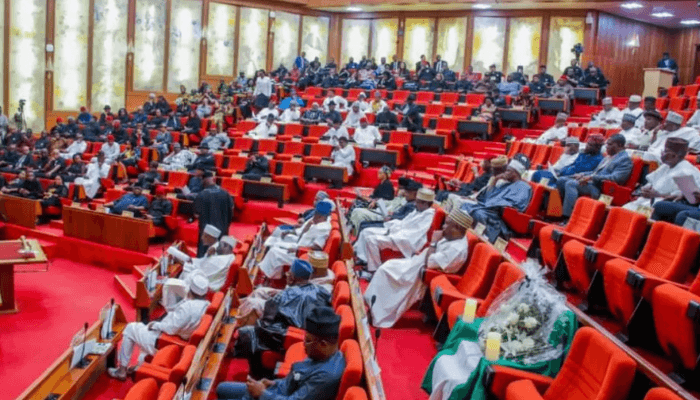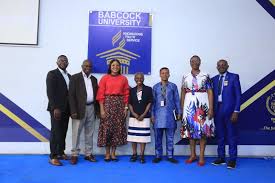World MSME Day 2018: Imperative to economic development

June, 27th every year has been declared by the United Nations as World MSME Day. The MSME Day 2018 Slogan is Youth Dimension-centring on Youth Entrepreneurship and Youth Employment. It brings to the front burner “the strong contribution of business worldwide to livelihoods, communities and economies and the need to support MSMEs towards their success.”
SMEDAN as an Agency saddled with the responsibility of the development and promotion of MSMEs in Nigeria is celebrating the day in collaboration with its partners in the MSME ecosystem.
The occasion will be used in resetting the mind set of the youth toward entrepreneurialism, considering the present dual challenge of massive youth unemployment and unemployability confronting them.
The overarching objective of this occasion is to provide a platform and a unique opportunity for discussions on how to develop requisite entrepreneurial skills for employment generation and wealth creation among our youth. They just have to be their own bosses by starting their own small business today.
There is growing recognition of the important role micro, small and medium enterprises (MSMEs) play in economic development. They play a pivotal role through several pathways that goes beyond employment generation.
They are growth-supporting sector that not only contribute significantly to improve living standards, but also bring substantial local capital formation and are responsible for driving innovation and competition in developing economics.
Government at all levels have undertaken initiatives to promote the growth and development of MSMEs. The general perspective is that MSMEs also play significant contribution in the transition from agriculture-led economies to industrial-led economies.
In Nigeria, the total number of Micro, small and medium enterprises as at 2013 stood at 37.07 million (categorised into micro-36,994,578; Small-68,168 and Medium-4670) accounting for over 90% of the total business enterprises in the country and have been noted to provide about 84.02% of employment, 48.47% to Gross Domestic Product (GDP) and 7.27% to export.
MSMEs therefore have a crucial role to play in stimulating economic development, generating employment, and contributing to poverty reduction, given their economic weight.
Certain peculiar challenges continued to militate against their optimal performance. Some of these constraints are internal while some are external. Among the internal ones are:
Poor entrepreneurial capacity of operators in successfully running MSMEs; Aversion to joint ownership is a major setback in achieving the desired relevance of MSME operations; Family ties/interferences are major constraints in running personnel recruitment/placements, discipline; Weak financial management;
Non-recruitment of qualitative staff as a result of keeping running cost low usually affects the quality of output from such organizations; Poor record keeping especially accounting books makes evaluation either by the business owner or potential investors difficult;
Lack of standardization of products has the capacity of reducing market share with negative impact on funding; Low capacity to invest in R&D have not allowed for new, cheaper and better methods of production; and Low use of ICT in operations has a direct effect on cost of production thereby making MSMEs unattractive.
The external challenges are: Poor state of infrastructure: MSMEs need steady power supply, water, roads, markets, etc for effectiveness; Poor access to appropriate and affordable workspace; Access to market: Their access to both local, regional and international markets is a major constraint;
and Inability to access affordable finance: Access to finance is a major constraint hindering MSMEs’ growth. Most financial institutions tend to address the financial needs of large enterprises leaving MSMEs unattended to among others.
It was in order to address these challenges that led to the establishment of the Small and Medium Enterprises Development Agency of Nigeria (SMEDAN) in 2003.
The Agency is a child of necessity to facilitate the development and promotion of a structured and efficient Micro, Small, and Medium Enterprises (MSMEs) Sector that will enhance sustainable economic development in Nigeria.
The Agency positions itself as a One Stop Shop for MSME Development with the overall objective of alleviating poverty, expanding gainful employment opportunities, wealth creation and sustainable economic growth and development.
The Agency is the apex and coordinating institution for all matters relating to starting, resuscitating and growing MSMEs in Nigeria. The Agency is also saddled with the responsibility of contributing to the attainment of the Economic Recovery and Growth Plan.
The Change Agenda of the present administration and the Cluster Development Approach of the Ministry of Industry, Trade and Investment are been driven by SMEDAN.
The vision and mission of the Agency are to establish a structured and efficient Micro, Small and Medium Enterprises sub-sector that will enhance sustainable economic development of Nigeria and to facilitate the access of Micro, Small and Medium Entrepreneurs and investors to all resources required for their development.
A well-developed MSME sector has proven to be one of the most veritable channels to combat poverty and generate massive employment. The establishment of SMEDAN is therefore justified by the need to trigger the development of Nigeria’s MSMEs in a structured and efficient manner.
The Governments in Nigeria have consistently made frantic efforts in advancing entrepreneurship and MSME development. However, in spite of these efforts, the expected results in terms of solving the challenges confronting MSMEs still persist.
The Vice President, Prof Yemi Osinbajo, eulogised the beauty of MSME in the MSME Clinic held in Benin, Edo State, thus: “MSMEs though small in units, accounts for over 50% of our GDP collectively.
It is why President Muhammadu Buhari is committed to improving the MSME experience through the MSME Clinic- access to Finance, Business Registration, Product registration and certification.”
The recent efforts of government include the following: N220 Billion MSME Development Fund of the CBN; Youth Enterprise with Innovation in Nigeria (YouWin); National MSME Clinics Initiative- Office of the Vice President. 15 States have launched MSME Clinics to date; Government Enterprise and Empowerment Programme (GEEP) – Market Moni; N-Power Programme among many.
The Vice President had also stated that the federal government Social Investment Programme (N- Power) is an important National Programme. He explained that “what we want to achieve is to be able to address the question of youth unemployment. Not just youth unemployment, because it is not enough to be employed, you must also be trained to be employed, you must also be trained and re-trained.
We want to make sure that our young people have the right types of training for any type of engagement that they do later in their lives.” However, the N-Power Programme has produced about 200,000 Graduates. More 300,000 graduates are expected by the end of June, 2018.
The Nigerian MSMEs are more likely to be able to play an important role in economic development if policies and programmes that promote stable financial development, effective and secure financial systems and targeted lending; good institutions at all levels of government supporting and promoting MSMEs.
This will ensure corruption and regulatory burdens are minimized and rule of law, land and property rights, creditors’ rights etc. are overcome accordingly; good infrastructure and facilities that encourage MSMEs to pool their information and resources and high level of entrepreneurship and sufficient human capital development.
There should be synergy by all public sector institutions within the MSME ecosystem to drive the overall development of the MSMEs sub-sector in Nigeria.
There should be MSME Capacity Building through partnerships with SMEDAN in order to de-risk MSMEs for access to finance. Encourage the patronage of MSMEs products by all tiers of government to stimulate the economy (Made-in-Nigeria patronage) and also procurement processes to favor local contractors.
Additional funding windows for MSMEs such as reactivation of National Enterprise Development Fund and Export Development Fund (EDF), Private Equity, Venture capital, should be vigorously explored while existing Development Finance Institutions should be strengthened through equity injection.
There is also need for an improved funding of SMEDAN. If the Agency is to achieve its lofty objectives, like its counterparts in other parts of the world, it has to be adequately funded in order to be placed at an advantage to provide incentives to MSMEs.
In line with the theme of MSME Day, “The Youth Dimension;” directly contribute to achieving the SDGs and Economic Recovery and Growth Plan (ERGP). Most of the interventions of Government centres on Youth Entrepreneurship aimed at curbing Youth Unemployment. We advise the Nigerian youth to take Agriculture as a business.
The youth should take advantage of the various government agricultural initiatives to engage themselves. The Agency has put in place a new Department- Agribusiness and Extension Services. The department is poised to chart a new course for Agriculture and Agro-allied Entrepreneurs.
The key to the economic emancipation of Nigeria lies in the generation of sufficient financial revenue, foreign exchange, increased employment and the opening of her borders to global competition. It is reasonable to say that this is therefore firmly dependent upon an efficient, structured and orderly development of Nigeria’s MSME sector.
DR RADDA, is DG/CEO, Small And Medium Enterprises Development Agency of Nigeria (SMEDAN) wrote in from Abuja.










